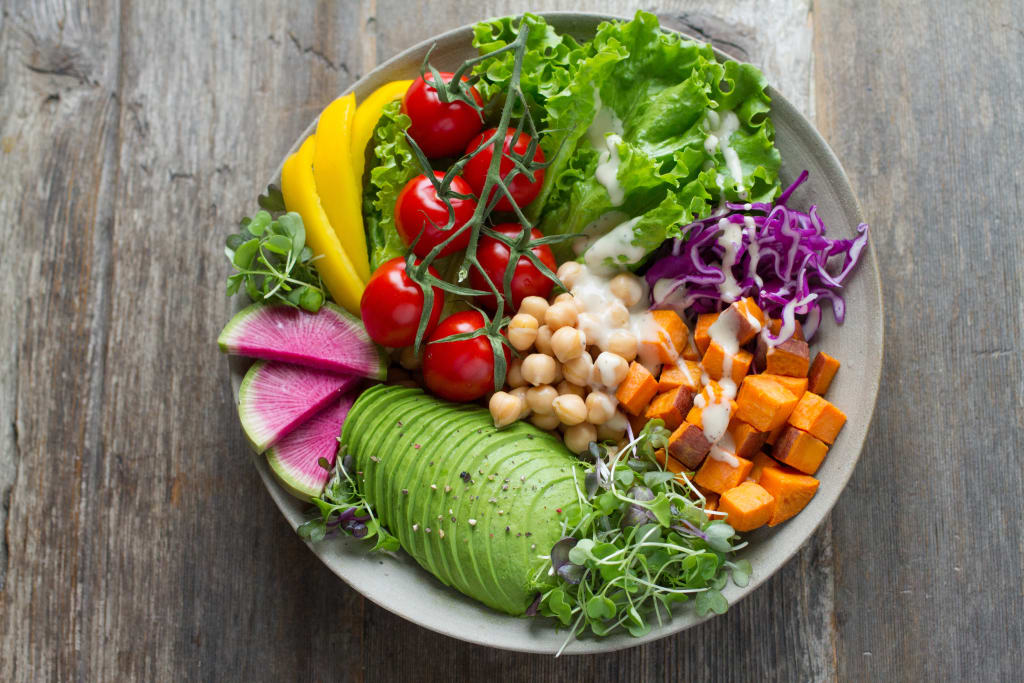
On a Ketogenic Diet, What Should You Eat?
A ketogenic diet is one that causes the body to switch from burning sugar to burning fat. Approximately 95% of the world's population consumes a diet that causes their bodies to burn sugar. As a result, after digesting carbohydrates, carbohydrates are their main fuel source. People gain weight as a result of this procedure, but weight loss can be achieved by eating a high-fat, high-ketone diet. When it comes to what you can eat on a ketogenic diet, you can consume up to 30 to 50 grams of carbs per day. Let's look at what you should put on your plate and how the ketogenic diet impacts your health next.
On The Ketogenic Diet, Sugar Avoidance Is Important
By eliminating dietary sugar derived from carbohydrates, Keto transforms the body from a sugar burner to a fat burner. Sugar and sugary foods should be the first clear cuts you should make from your current diet. While sugar is a clear goal for elimination, the ketogenic diet focuses on carbohydrate restriction. Sugar can be found in a variety of foods and nutrients, so keep an eye out for it. Even a carb-heavy white potato may not taste as sweet to your tongue like sugar.
However, after digestion, those carbs enter your bloodstream and provide your body with glucose, a basic sugar. The reality is that our bodies can only store a certain amount of glucose before dumping it somewhere else. Excess glucose is converted to fat, which accumulates in our stomachs, love handles, and other areas.
Protein's Position in the Keto Diet
Protein is a carbohydrate source that some people lack in their diet. Overconsumption of protein beyond your body's tolerance level will lead to weight gain. We must limit our protein intake because our bodies turn excess protein into sugar. Part of how to eat ketogenic and lose weight is to limit our protein consumption.
First and foremost, determine your daily protein tolerance and use it as a guide to achieving an adequate protein intake. Second, choose organic cage-free eggs and grass-fed meats as sources of protein. Finally, make a range of tasty meals to keep your interest in the diet alive. A 5-ounce steak and a few eggs, for example, will provide an adequate amount of protein for certain people.
On The Ketogenic Diet, Caloric Intake
Another significant factor for what you should consume on a ketogenic diet is calories. The energy we get from the calories in the food we eat keeps our bodies running smoothly. As a result, we must consume enough calories to satisfy our daily nutritional needs. Many people on other diets find calorie counting to be a chore. However, as a ketogenic dieter, you won't have to think about calorie counting nearly as much. Most people on a low-carb diet are happy with a daily calorie intake of 1500–1700 kcals.
The Good and the Bad Fats
Fat isn't all bad; in fact, many healthy fats can be found in whole foods like nuts, seeds, and olive oil. Healthy fats, which are available as spreads, chips, and toppings, are an important part of the ketogenic diet. Misconceptions about consuming fat include the belief that eating too much of it is unhealthy and leads to weight gain. Although both claims are valid in certain ways, the fat we eat is not the direct cause of the fat we accumulate on our bodies. Rather, the sugar we absorb from each nutrient is what ultimately turns into fat on our bodies.
Wisely Balance The Nutrients
The sugars we consume are absorbed into the bloodstream during digestion, and the excess is stored in our fat cells. Since these nutrients contain sugar, consuming a high carbohydrate or high protein diet can result in excess body fat. Excessive consumption of any nutrient, therefore, is toxic and leads to weight gain. A balanced diet, on the other hand, consists of a mixture of protein, carbohydrates, and fats based on the body's tolerance levels.
With enough determination and effort, almost everyone can follow a ketogenic diet. Furthermore, we can use keto to automatically regulate a variety of bodily conditions. Insulin resistance, high blood sugar, inflammation, obesity, and type 2 diabetes are only a few of the health issues that keto can help with. For the victim who practices a safe ketogenic diet, each of these adverse conditions will decrease and normalize. This diet's life-changing health benefits are provided by whole foods that are low in carbs, high in fat, and mild in protein.
About the Creator
belle
I am composing articles on Advertising & Marketing, Social Media, Small businesses, event planning, and services, etc. I write articles on anything related to weight loss, relationships, and advertising, and business growth.






Comments
There are no comments for this story
Be the first to respond and start the conversation.